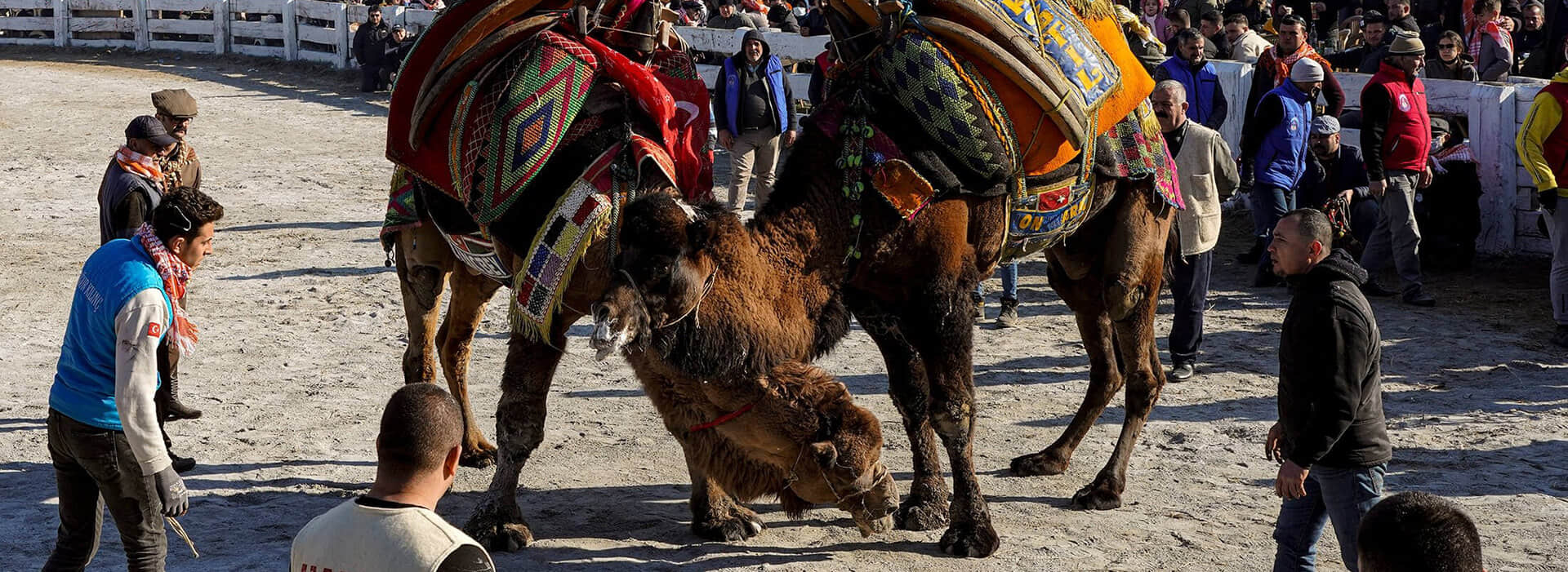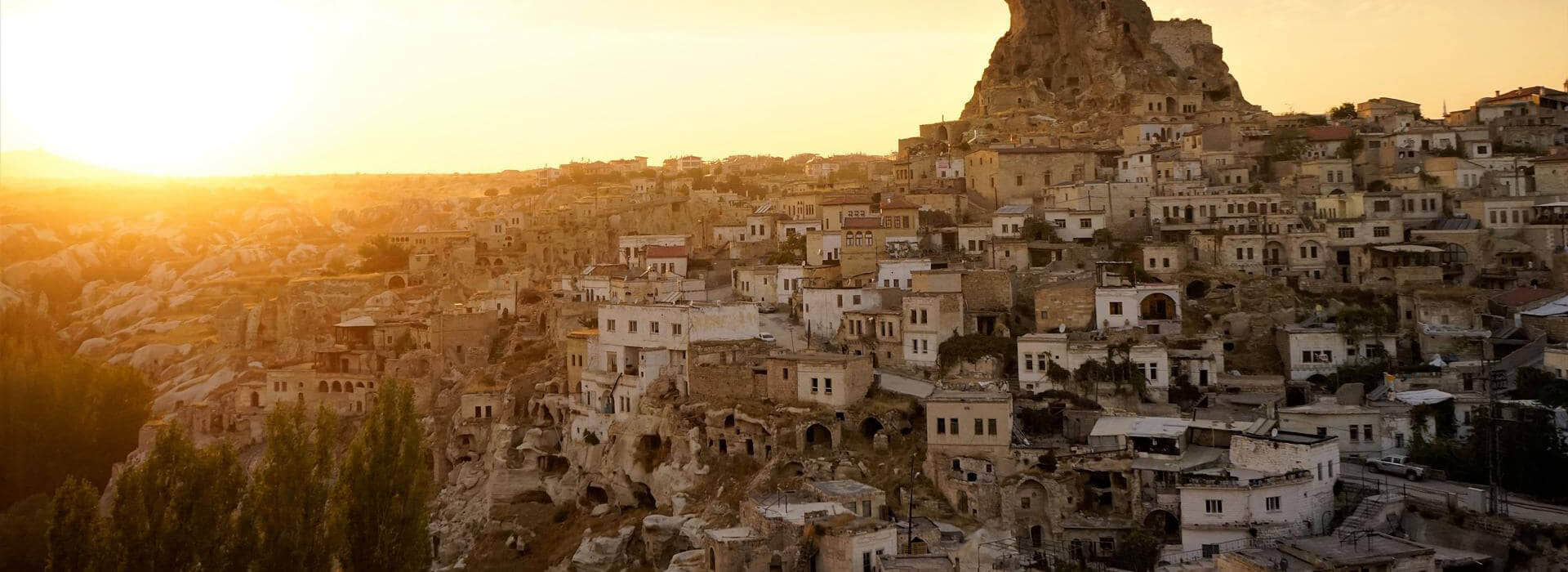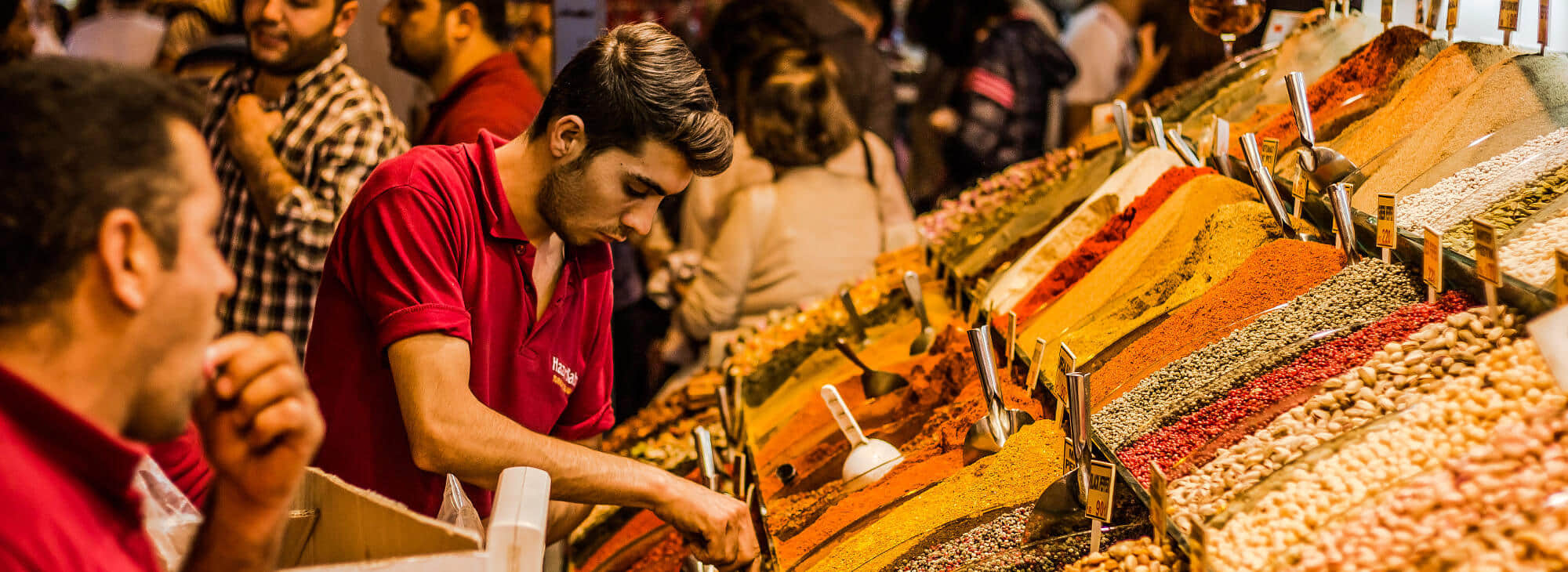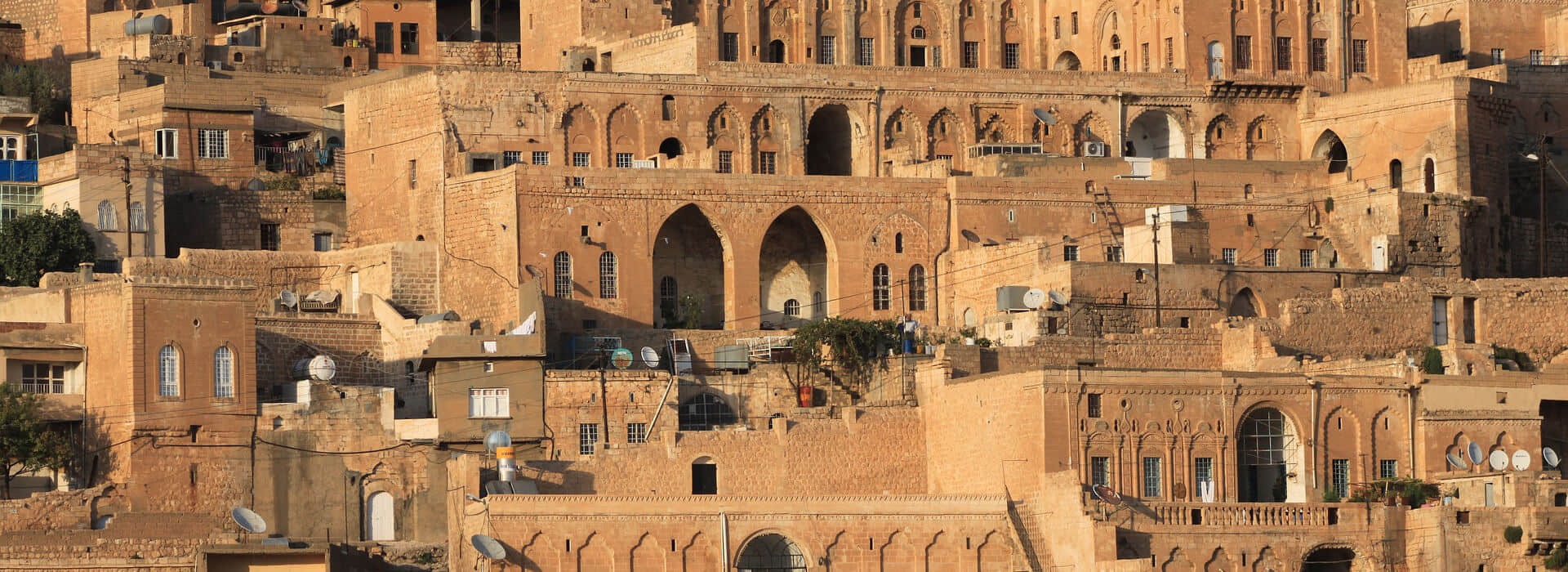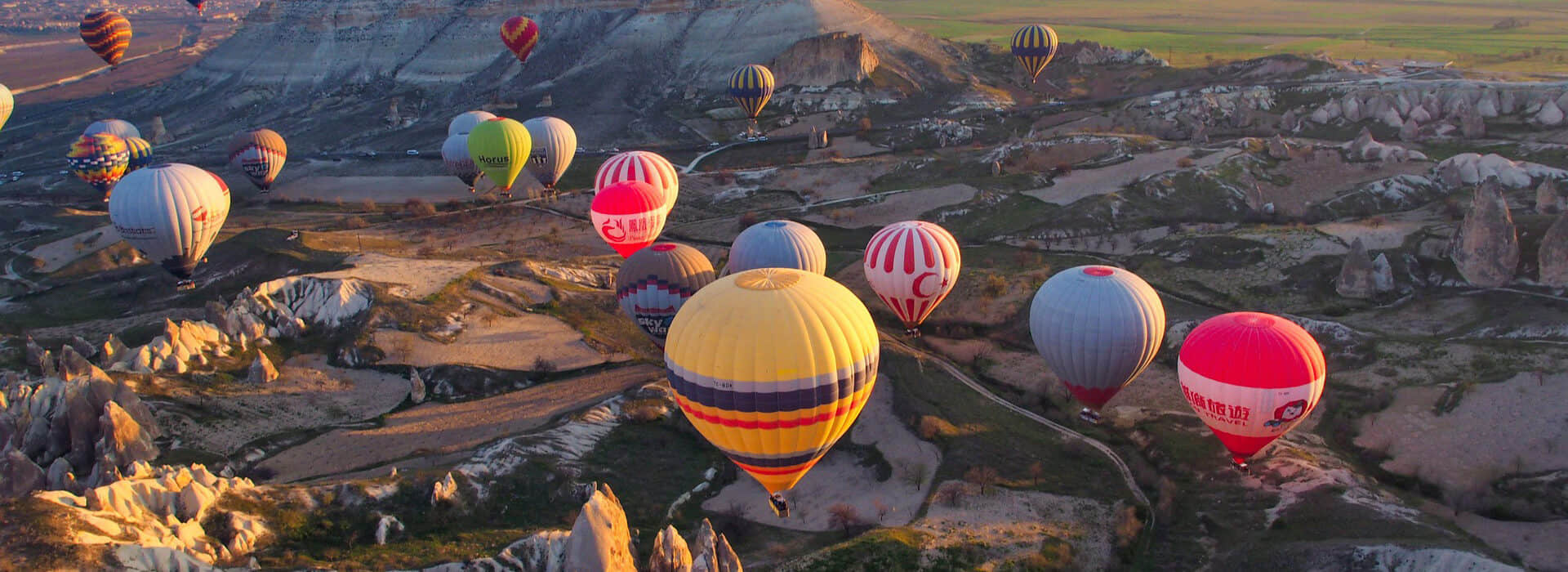Top 6 Traditional Festivals in Turkey
Turkey delivers more than just a fascinating culture & stunning landscape. It is also considered as a home to a various holidays and festivals, several of which have a very long history and interesting celebrations that you cannot find other parts of the world.
Festivals are a vibrant part of Turkish life, from historical to traditional, gastronomic to cultural. In fact, every day in Turkey is a festival but there are few traditional festivals that mirror the actual culture of the country that has its footprints in two continents. Here are some of the most popular Turkish traditional festivals that you should not miss if you are in Turkey that time.
#1. Istanbul Tulip Festival
Location: Gulhane Park, Emirgan Park and other parks in Istanbul
Time: April
Tulip is the national flower of Turkey. Tulips are native to Turkey and central Asia, tulips were considered as the Sultan Suleiman’s favorite flower (Sultan of the ottoman empire, Turkey). In early 16 century, the Tulips were brought to Holland from Turkey and become widely popular in no time. The name of tulip comes from Turkish, meaning an Islamic girl wrapped in a headscarf. The image of tulip is also widely used in various ornaments and painted decoration of palaces, mosques and other buildings.
The Istanbul International Tulip Festival is an urban event hosted by the local municipal government and kicks off in early April every year. During the festival, the ancient city of Istanbul turns into a sea of flowers, with tulips blooming everywhere in parks, squares and roads. You can find the magnificent spring blooms all around Istanbul during the month of April. First, however, you must visit Emirgan Park for an authentic tulip experience and the International Istanbul Tulip Festival. It has numerous tulip gardens and is one of Istanbul´s largest public parks. Emirgan Park lies near the Bosphorus in Sariyer, just before the second Bosphorus Bridge.
#2. Mesir Paste Festival( Candy Festival)
Location: Sultan Mosque in Manisa
Time: March
Every year, residents of Manisa and the surrounding communities congregate around the Sultan Mosque to catch Mesir paste of Manisa thrown from the mosque’s domes and minarets by men dressed in traditional garb. A lavish, much-anticipated parade also takes place around the mosque, with the president, prime minister, numerous ministers and members of parliament, officials from NGOs, and notable inhabitants of Manisa in attendance. Mesir Paste, which is made from a particular recipe of a paste containing 41 different herbs and spices, is dispersed in the hopes of ensuring everyone’s well-being throughout the annual Nevruz week.
Mesir Paste Festival encompasses a variety of cultural and traditional traditions and is held during the week of Nevruz, which is considered the start of spring. Nevruz Festival starts on March 21, per the Gregorian calendar.
#3. Camel Wrestling Festival
Location: Selcuk
Time: third Sunday of January
Camel culture dates back to the Yoruks, a nomadic people whose ancestors were the ancient warrior Selcuks, who arrived in Anatolia during the 11th century. Camel wrestling festivals are only held at places around the Aegean coast of Turkey. The biggest festival is in Selcuk province. The festival is celebrated in the ancient hippodrome of Ephesus.
The camels are brought into a sandy arena to tangle with each other, with referees and other personnel nearby, and they are made to wear muzzles to prevent bite wounds. Thousands of people set up tables and chairs on a hill adjacent to the arena and cook on barbecues, eat and drink while they watch the animals go at it.
Selcuk festival takes place on the third Sunday of January. The Selcuk festival is also called the championship of camel wrestling. Individual champions of other smaller festivals attend her to determine the ultimate winner.
You can proceed to visit the ancient city of Ephesus after the festival.
#4. Yagli Gures(Oil Wrestling Festival)
Location: Edirne
Time: July
Yagli Gures, or Turkish Oil Wrestling, is one of Turkey's oldest sports and a historic festival that has been held annually since 1362. Two men, covered in oil, wear leather trousers and wrestle, battling it out in matches that can last for hours to become champions. It is open to men from all cultures, regions and ages without discrimination, with as many as thousands entering each year. Each year in June, the Turkish Oil Wrestling tournament is held at Kirkpinar, Edirne, in Turkey. The object of oil wrestling is to get your opponent in a position where his back touch the ground or belly faces the sky, at which point he loses the game. The victor of the oil wrestling tournament wins the coveted gold belt for the year and is given the title of Başpehlivan, meaning head wrestler. If a wrestler can obtain this award for three consecutive years, they become the continuous owner of the golden belt, alongside cash awards.
The legend says the second Ottoman sultan, Sultan Orhan, wanted to keep his soldiers fit and ready for battle. But oil wrestling has been practiced across the region for thousands of years.
#5. Ahirkapi Hidirellez Festival
Location: Across Turkey
Time: 5th of May
The festival is celebrated, to awaken nature on a particular day of the holiday; the festival is celebrated with ancient rituals and colours. It is believed that on this festival the Muslim saint Hizir appears under the disguise of a mendicant appears to saves his people from disasters. As per the folklore, Saint Hizir has driven his characteristics from ancient fertility deities and is associated with spring planting and rebirth.
Apart from the spring festivals, the Hizir is also a patron saint for travellers who protect them from the haphazard ancient roads of Turkey. Ahirkapi Hidirellez Festival in Turkey is celebrated for marking the arrival of the season of the nurturing season.
People jump over fire, as well as dance and place wishes on the Nahil, “Wishing Tree.” In the northwestern province of Edirne, a traditional focal point of Hıdrellez celebrations, hundreds of festivalgoers threw papers with wishes written on them into the Tunca River. As part of celebrations of the seasonal festival, people threw their wish papers, pebble stones and olive branches to the sea in the Mediterranean province of Antalya and wished health, job, money and love.
#6. Mevlana Whirling Dervishes Festival
Location: Kongya
Time: November or December
Held in Konya Turkey, the Mevlana Festival and the ceremonies happen with a lot of pomp and show. The whirling dervish is the most popular element that takes place during the ceremony. It is a trance-like twirling dance representing the connection of the dervish with the almighty. It is a culminating celebration that commemorates the life, the teachings and the death of Jalal ad-Din Rumi, the poet, Islamic theologian, and Sufi mystic who lived in Konya for 45 years until his death on the 17th of December 1273.
The “Mevlevi Sema Ceremony” is listed by UNESCO as an Oral and Intangible Heritage of Humanity and together with other musical and mystic performances builds up a unique and esoteric atmosphere that characterizes the Mevlana Whirling Dervishes Festival. The festivity offers the opportunity to thousands of visitors to immerse in a spiritual journey and explore some interesting aspects of Turkish history, beliefs, and culture.
Celebration Dates: The exact date of the celebration is based on the Islamic religious calendar, and this varies from year to year. However, the event is almost always held in November or December.
Besides the above traditional festivals, you can also attend many modern festivals like Rock’n Coke, Cappadox and Istanbul International Film Festival. Join in one of our crafted tour to experience Turkey highlights.
